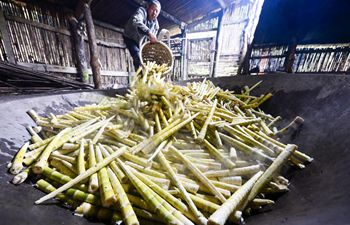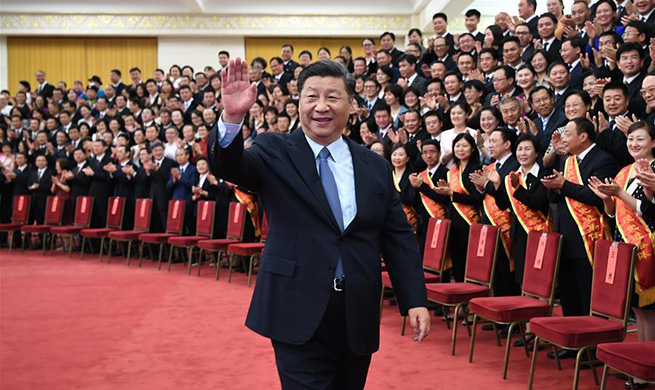ROME, Sept. 2 (Xinhua) -- Around 100,000 members of Italy's populist, anti-establishment Five-Star Movement will decide on Tuesday if the proposed government with the center-left Democratic Party will go forward or not.
In an unusual form of direct democracy, the decade-old political party has occasionally used the so-called "Rousseau" website to allow supporters to vote on major party issues. On Tuesday, between 9 a.m. and 6 p.m. local time, subscribers will vote on one question: "Do you agree the Five-Star Movement should form a government headed by Giuseppe Conte with the Democratic Party?"
If the measure fails, it means Italian President Sergio Mattarella will be forced to decide between the same flawed choices he had before he gave Conte a mandate to form a new government on Aug. 29. Mattarella could call for snap elections that would seat a new parliament in the middle of the debate over the country's 2020 budget or he could call for a technocrat caretaker government that would pass the budget and then prepare for elections early next year.
For his part, Conte lobbied for Five-Star Movement voters to support the government plan, making a reference to last year's general election in which members using the same "Rousseau" platform voted in favor of what turned out to be an ill-fated partnership with the nationalist, right-wing League. Conte headed that government, which survived for nearly 15 months before collapsing under pressure from the League on Aug. 20.
"I understand your concerns," Conte told members of the Five-Star Movement. "But I would also like to recall that before last year's election, the Five-Star Movement said it was ready to join any political force ready to carry out its political agenda. Today, we have a big chance to change this country."
By calling for the vote, Five-Star Movement head Luigi Di Maio put the country's near-term future into the hands of around 100,000 registered party members. If the measure fails, it would likely give the Five-Star Movement's former coalition partner, the League, the upper hand in leading the next government.
"This kind of vote is unusual, but it is one of the defining aspects of the Five-Star Movement, part of its DNA," Riccardo Puglisi, an economist and commentator with the University of Pavia, told Xinhua. "In this circumstance, it also has the benefit of being a signal that the decision of whether the new Conte goes forward or not is up to them."
There are no polls that question only Five-Star Movement members registered to vote on the "Rousseau" platform, so it is difficult to speculate which way Tuesday's vote could go. Will voters reject the proposition based on their long animosity against the Democratic Party? Or will they support the proposition in order to avoid elections that would almost surely see the League gain power at the Five-Star Movement's expense?
"The worst-case scenario is not that the proposition passes or that it fails," said Lorenzo Castellani, a professor specializing in the history of political institutions at Rome's LUISS University, in an interview. "The worst-case scenario is that the vote is close. If one side doesn't win with at least 60 or maybe even 65 or 70 percent of the vote, whatever happens next will be colored by the slim margin that side won by," he noted.













